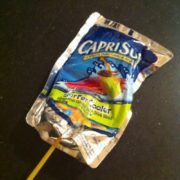Amsterdam, 9 October 2019 – Unilever, with more than 400 brands, promises to reduce the amount of plastic drastically by 2025. In addition, the group promises to halve the use of new (virgin) plastic and to increase the use of recyclates. Unilever sells products to more than 2.5 billion people in more than 190 countries and is one of the companies that contribute most to the plastics soup. The new CEO Alan Jope says “We need absolute urgency in turning off the plastic tap.” Will his measures really help in the fight against the plastic soup?
Less virgin and more recyclates
Unilever has announced two new targets for 2025:
- Cutting the amount of virgin plastic in packaging to half its original size.
- Collect and process more plastic than the company sells.
Unilever uses approximately 700,000 tonnes of virgin plastic per year. This quantity should be reduced to half by 2025, i.e. no more than 350,000 tonnes of virgin plastic will be used. The company wants to achieve this by using less plastic in the packaging (this will result in an expected reduction of 100,000 tonnes) on the one hand and by using more recycled plastic (250,000 tonnes) on the other. In total, this is 600,000 tonnes. On average, this means an absolute reduction of 100,000 tonnes. Unilever claims to be the first multinational to promise an absolute reduction in the use of plastic.
Refillable and packaging-free products
Less packaging plastic, other packaging materials, unwrapped ice cream, unpackaged soap, higher concentration of detergents, more reusable products, refillable products; the list of opportunities that Unilever can and wants to utilize is long. But there is still plastic left. It must be reusable, recyclable or compostable. Non-recyclable plastic will, therefore, be replaced by recyclable plastic.
Who controls?
In order to obtain recyclable plastic, plastic waste must be collected. Unilever will work with partners to collect plastic in areas where waste collection is lacking or poor. How much money is involved, how effective it is and how many of these initiatives there are and where remains unclear for the time being. In addition, Unilever will also pay directly for recycled plastic. However, this is worse in quality than virgin plastic and also much more expensive. This implies that the proposed approach is susceptible to fraud. Who will control Unilever?
Big challenge
The biggest challenge is undoubtedly the sachets or mini-packaging. The packaging consists of several layers. So far there has been one pilot plant, in Indonesia, which recycles these packaging with chemical recycling. This is a theoretical solution. After all, the mini-packaging is mainly sold in areas with little purchasing power. Unilever must, therefore, demonstrate that all these packagings are neatly collected and transported to factories yet to be built, while it is precisely in the sales areas that the garbage collection is in default.
Is absolute reduction a relative concept?
The absolute reduction of single-use plastic (SUP) is one of the pillars of the Plastic Soup Foundation. It is therefore fantastic that Unilever is the first multinational to announce an absolute reduction. Or is it? Multinationals like Unilever wants to grow. They are striving to sell more and more products. How exactly does that relate to the promise of absolute reduction of plastic?
Photo: Sachets, including from Unilever. Roshan P. Rai of Zero Waste Himalaya.
Read more – Unilever’s biggest polluter in the Philippines
Read also – Unilever’s promised cuts to plastic are welcome… but it’s still not enough
Read also – Unilever vows to reduce the use of plastic packaging





